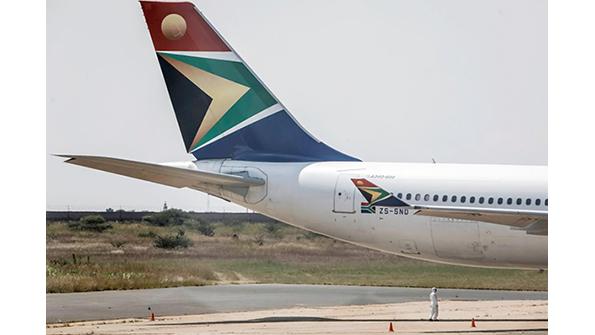
African traffic is expected to fall 58.5% in 2020, the greatest percentage decline of any region, impacting an already struggling aviation sector.
According to IATA figures, African carriers are expected to post a $2 billion net loss this year, based on a $6 billion drop in year-on-year revenue. The African Airlines Association’s (AFRAA) revenue drop forecast is even more grim at $8.1 billion.
“The course of the virus in this region is yet to be fully seen. Nonetheless, border closures have all but stopped flights,” IATA said in June.
African airports are also expecting to lose 51% of their revenue. IATA, ACI Africa and ICAO estimated that the downturn could cost 3.1 million African jobs, around half the 6.2 million jobs supported by the industry.
“Restarting international connectivity safely, while ensuring that aviation is not a meaningful source for the spread of COVID-19, is not an option but a must,” IATA regional VP for Africa and the Middle East Muhammad Albakri said.
Airline liquidity remains the greatest challenge. “Without it, airlines can simply not survive this pandemic long enough to restart their operations,” AFRAA secretary general Abdérahmane Berthé said, as he called on governments to offer financial injections, credit lines and stimulus measures.
According to the body’s statistics, African passenger traffic was down 90.3% in May. The recovery is expected to begin in the third quarter, initially on domestic routes.
In preparation for this restart, the African Union, which represents 55 African states, has adopted ICAO’s “Takeoff” guidelines into its COVID-19 restart and recovery strategies. “Guidelines mean nothing if they are not implemented. And that is our main message to governments in Africa,” Albakri said.
Many African airlines were battling financial difficulties before the crisis. In late November, fastjet CFO Kris Jaganah warned that an urgent restructuring was needed to continue as a going concern. The LCC is yet to finalize the sale of fastjet Zimbabwe and the company’s reinvention as a franchise house with just one South African airline, FedAir.
In December, South African Airways (SAA) entered business rescue, the equivalent of administration. The business-rescue practitioners (BRPs) are looking to slim down SAA and recapitalize the business under a new holding company, but the process has been repeatedly delayed. In February, state-owned regional airline SA Express also entered business rescue and a decision was made to liquidate the business.
Indian Ocean-based Air Mauritius went into voluntary administration in April after travel restrictions hit the airline’s revenue, making it “impossible” for the airline to cover its costs, the Air Mauritius board said.
South African carrier Comair joined the other ailing carriers in voluntary business rescue in May. Privately owned Comair, which operates as LCC kulula.com and franchise flights for British Airways, had been profitable every quarter for 73 consecutive years, but was hit by a series of exceptional items. Comair’s BRPs are looking to rationalize the airline’s fleet from 27 aircraft to 13 active 737-800s. The BRPs are in talks with a potential investor, with a view to relaunching in November.
Kenya Airways is also restructuring, under the leadership of new CEO Allan Kilavuka. In May, Kenya Airways announced a KES13 billion ($121 million) full-year loss, even though revenue was up 12%. Kenya Airways chairman Michael Joseph said the airline was “recalibrating.” In February, the government granted a KES5 billion loan to the carrier. Flights remain suspended until July 6 at the earliest.
Ethiopian Airlines continued operating flights where possible during the crisis, but lost “significant” revenue. Ethiopian Airlines Group CEO Tewolde GebreMariam said the airline was ready to increase frequencies and take a “leading role” in the recovery.
Qatar Airways has also announced plans to take a 49% stake in state-owned RwandAir, although this deal is yet to be finalized.
Airline Management Group founder Peter Davies, who worked on the SAA restructuring, stressed that Africa is a huge continent and the situation varies between countries and regions.
“There’s no consistency amongst the African market, other than many African airlines have consistently lost money over many years, which is great shame,” he said.

